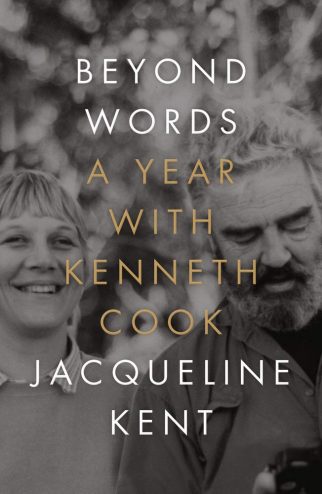 By JACQUELINE KENT (University of Queensland Press; 2019)
By JACQUELINE KENT (University of Queensland Press; 2019)
For anyone interested in the work of Australia’s late Kenneth Cook this book is a veritable goldmine. It joins publications like ONE WHO WALKED ALONE by Novalyne Price Ellis and HIGHSMITH: A ROMANCE OF THE 1950s by Marijane Meaker, being a memoir about its author’s relationship with a literary icon. Kenneth Cook, a prolific novelist best known for authoring the Aussie classic WAKE IN FRIGHT, may not be as iconic an author as Robert E. Howard or Patricia Highsmith (the respective subjects of ONE WHO WALKED ALONE and HIGHSMITH), but he was every bit as gifted and stubbornly individualistic, and BEYOND WORDS provides a good warts-and-all portrait of this underrated genius.
Jacqueline Kent was living a contented life as a literary editor when she first met Kenneth Cook in July 1985. Their initial dinner party encounter was underwhelming, but Cook, who had just “emerged from a very bad patch,” needed an editor for a short story collection he was preparing called THE KILLER KOALA. Kent took the job, thus producing an unlikely bestseller, and an even more unlikely May-December romance between two very different people; as she admits early on, “The fact that Ken and I got together at all still surprises me.” What neither knew was the Cook was in his final days, with a poor diet and alcoholism leading to a fatal 1987 heart attack at age 57, shortly after the two had gotten married.
Ms. Kent is admirably frank about her relationship with Cook–perhaps a bit too frank. As portrayed here, the man comes off as lazy, controlling and financially irresponsible above all else. Furthermore, Cook’s relations with his four grown children seemed a bit too intimate for comfort, with Cook coming to lean on his offspring a bit overmuch after the collapse of his first marriage, creating a family collective called “The Company” that Kent, despite her best efforts, was never able to breach. One of the book’s most brutally unforgettable passages occurs near the end, when following Cook’s death Kent organizes a lunch between herself and his children, during which “they ignored me completely. I might as well not have been there.”
One issue I have is with Kent’s estimation of Cook’s literary output. She dismisses much of it, unfairly, as “journeyman writing,” lavishing a great deal of attention on THE TAKE, a pseudonymously published 1963 potboiler that Cook admittedly wrote purely for money—a fact Kent, like many literary types the world over, finds unforgivable. Of Cook classics like PLAY LITTLE VICTIMS and THE JUDAS FISH, both assuredly not journeyman writing, she offers no opinion, with WAKE IN FRIGHT the only one of his books to which she offers any real plaudits.
Yet the portrait this book paints of Kenneth Cook, unflattering though it may be, feels authentic. It certainly answers many questions I had about Cook, such as why was it that he stopped writing novels in his final years (answer: because his personal issues, which included a crippling bankruptcy, overwhelmed him) and how precisely he died (which Kent, who witnessed his demise, describes in uncomfortable detail). It’s also quite reader-friendly, and must stand as the foremost biographical resource to date on the brilliant and elusive Kenneth Cook.
